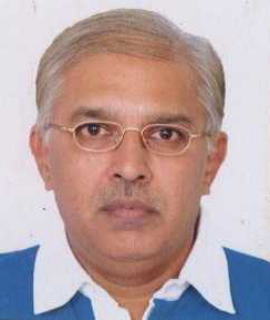Predictive Microbiology & Machine Learning
Predictive microbiology is a field that combines microbiology, mathematics, and statistics with the goal of developing models to characterise and predict microbe growth and inactivation under a variety of situations. Predictive microbiology is based on the idea that the responses of populations of microorganisms to environmental factors are repeatable, and that by thinking about environments in terms of identifiable dominating constraints, it is possible to predict those microorganisms' responses based on previous observations. Predictive microbiology, according to proponents, has numerous advantages in the field of food microbiology, and there is growing international interest.
Microbiologists are living in an era when high-throughput smart technologies are being used to capture biological data in unprecedented volumes. Applying computational tools to find useful information from these data is becoming an increasingly important skill requirement outside laboratory and field experiments. Machine learning (ML), a subfield of artificial intelligence (AI), is a well-established approach that is gaining traction in the field of microbiology. It has so far been applied to computationally intensive problems such as predicting drug targets and vaccine candidates, diagnosing infectious disease-causing microorganisms, classifying drug resistance to antimicrobial medicines, predicting disease outbreaks, and investigating microbial interactions.
- Microbiological Risk Assessment
- Predictive Models
- Qualitative and Quantitative Tools
- Microbiological Quality
- Statistics
- Big Data Analysis
- Machine Learning
- Artificial Intelligence

Xingmin Sun
University of South Florida, United States
Bing Chen
Memorial University, Canada
Shailesh R Dave
Xavier’s Research Foundation, LCRD, India
Michaela Hostetler
The Ohio State University, United States


Title : Degradation of chitin using chitinase produced from molecular identified bacteria
Afra Mohammed Baghdadi, Jeddah University, Saudi Arabia
Title : Antibiotic resistance of clostridioides difficile
Xingmin Sun, University of South Florida, United States
Title : Metagenomics of the saline habitats of coastal Gujarat, India: Emerging potential for biocatalysis and bioremediation
P. Satya Singh, Saurashtra University, India
Title : Molecular Response Analysis for Lentinus squarrosulus AF5 under Azo dyes Stress: An Integrated Proteome Dynamics and Putative Metabolic Cascade
Anshu Mathur, Indian Institute of Technology Roorkee, India
Title : The necessity for innovative biotechnological solutions for the treatment of dying and textile effluents and their prose and cones
Shailesh R Dave, Xavier’s Research Foundation, LCRD, India
Title : In search of obesity-linked signature gut microbial features and species contributors of reproducible pathway shifts
Deep Chanda, National Institute of Technology, India